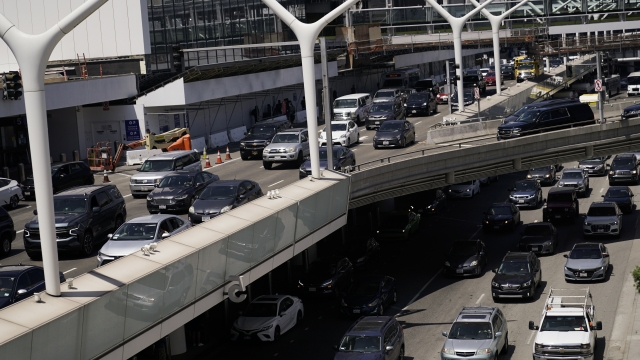Since the beginning of the pandemic, headlines have told us that people are leaving California in masses — one out of every 100 people, to be more precise.
"California is 12% of the country, and I think people forget just how big the state is in comparison to the rest of the country," said Evan White, the Executive Director of the California Policy Lab at UC Berkeley.
The state's massive population is one reason this exodus seemed so problematic; another reason was worry over the financial ramifications.
"It's the fourth largest economy in the world," White said.
White tells Scripps News their research at the California Policy Lab shows some of these fears were unfounded.
"Initially, the concern was that high-net-worth individuals were moving out of California, and that was going to drain the tax base in the state. Our research shows that that probably isn't the case, that people from wealthier zip codes are just as likely to move out of the state as people from non-wealthy zip codes," White said.
Patterns like this are what Irene Bloemraad, Professor of Sociology at UC Berkeley, has been studying for years.
She says this decline in population brings more opportunities than alarm bells to more densely populated cities. If there is any worry, it's farther away from metropolitan hubs.
"If anything, the places that are really hurting by the exodus are the more rural parts of the state ... where when people leave it's harder to keep schools functioning, it's harder to keep health care centers functioning," Bloemraad said.
Other states like New York, Illinois and Louisiana have also seen declines, but these are not indicators that other states should expect a similar trajectory. If anything, White says, they will be experiencing the opposite: an influx in the population.
SEE MORE: U.S. Housing Markets With the Biggest Price Drops
"We plan on doing future research that looks at the question of where people are going," White said.
For larger cities like San Francisco, which felt the decline in population, the real question is if fewer people is a negative thing."[With] housing costs in the state, you could make the argument that it might not be the end of the world that some people are leaving, because that might actually help make a little bit more of an equilibrium for our housing costs," Bloemraad said. Bloemraad says if there ends up being any negative outcomes to the decline, there are solutions to combat it.
"There's this difference between the metaphor of what population loss or the exodus means in terms of the California dream and ... the reality on the ground of what's actually going on," Bloemraad said.
"One of the interesting things about California is that a lot of its population growth within the last 30, 40, 50 years has been due to international migration in addition to domestic migration, but that international migration has actually slowed down over the last little while," Bloemraad said.
Expanding immigration, she explains, can have lasting economic effects. The U.S. Bureau of Labor Statistics says foreign-born residents are much more likely to be working than those born in the U.S.
"And so it's not just economics, it's also the pathways, the social networks that have come previously that bring certain groups to certain places," Bloemraad said.
In this post pandemic era, in a time where remote work is more popular than ever, she says migration patterns may tell us a different story than in the past.




